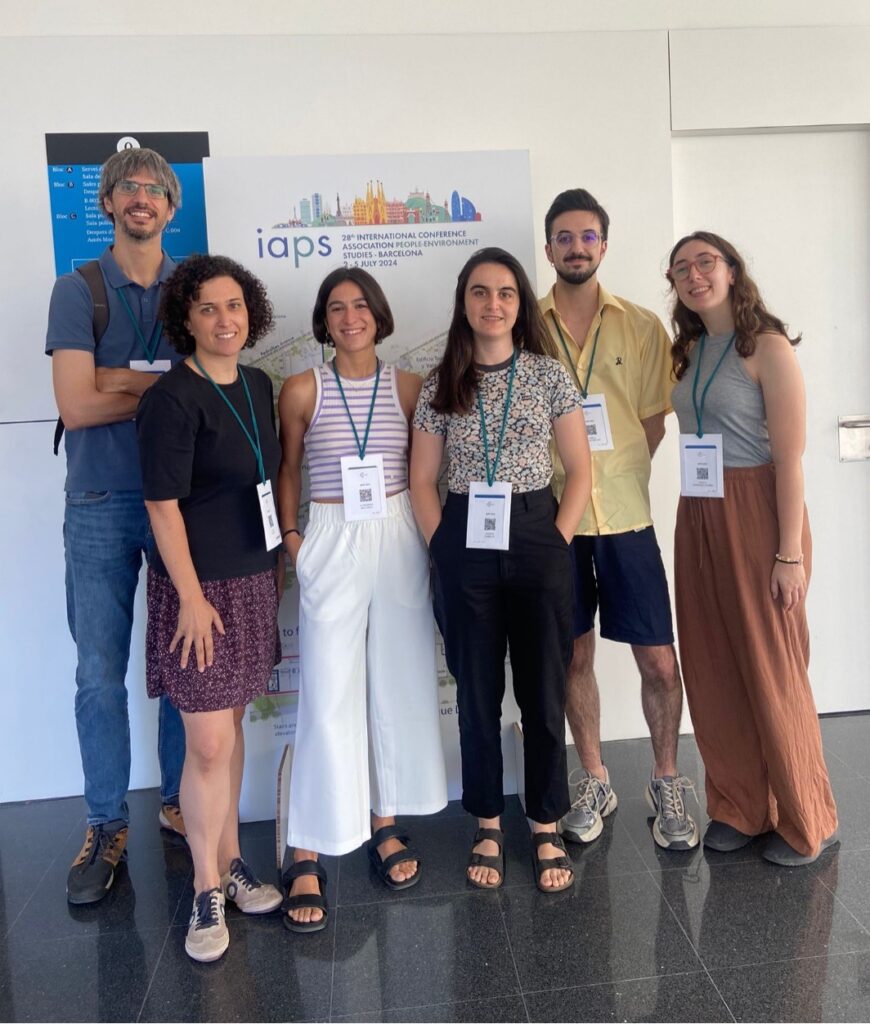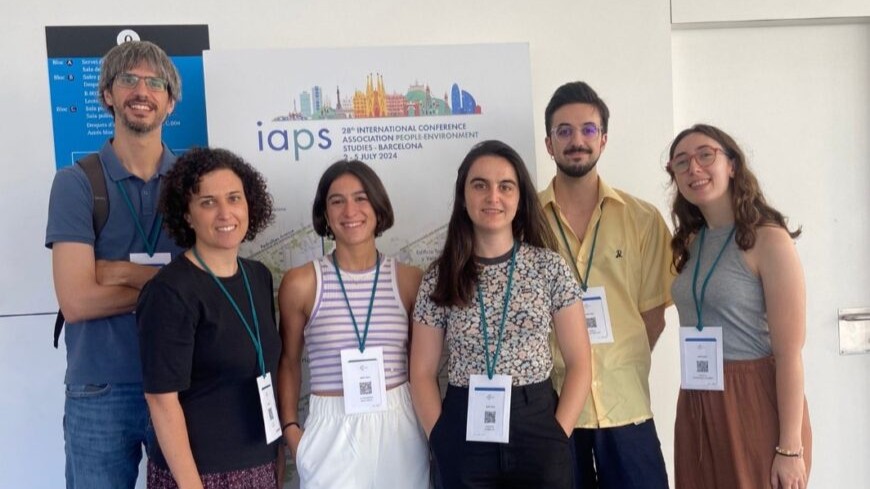
The initial findings of the ATRAPA project were showcased at the IAPS 2024 conference held in Barcelona July 2-5. Oriol Marquet and Monika Maciejewska participated in a special session entitled Street pacification and Tactical Urbanism. Pacification of streets, green axes, superblocks and green inside blocks which counted with institutional representation from the Barcelona City Council and gathered a number of researchers that have explored a number of topics related with superblocks and Barcelona’s recent urban transformation. The ATRAPA researchers presented their work on “The Superblock Effect: Urban Design and its Electoral Repercussions in Barcelona” which focuses on the political ramifications of superblocks and 15-minute cities. The study was able to reveal that areas with superblocks showed stronger support for the incumbent party, Barcelona en Comú (BEC) in recent 2023 elections despite a general decline in the party popularity at city level.
On the same special session, Pablo Villar presented his insights on “The Impact of Proximity to Amenities on Housing Affordability: Insights from Mediterranean 15-Minute Cities.” His research assessed how proximity to amenities affects rental prices in cities like Barcelona, Valencia, Palma, and Granada. The study found that while accessible areas tend to have higher rental prices, less accessible areas show the opposite trend, with Barcelona exhibiting a polycentric layout affecting affordability in various ways.
Finally, Marta Fernandez presented on the Session devoted to Modal choice & sustainable mobility. Her presentation, entitled “The Influence of Built Environment Transformation Policies on Local Elections” further explored the connection between urban transformations and the electoral outcomes for the incumbent party in the latest 2023 local elections. Her findings highlighted a significant correlation between superblocks and votes for BEC, though the impact was less clear for other initiatives like pacifying school environments and reducing parking spaces.
Overall, the conference, which brought together hundreds of environmental psychologists, geographers, and scholars interested in the built environment’s influence on human behavior, was a great success. The presented results represent the ATRAPA’s team first steps towards the overall aim of the project of understanding how urban transformative policies are received by the population using electoral results.
